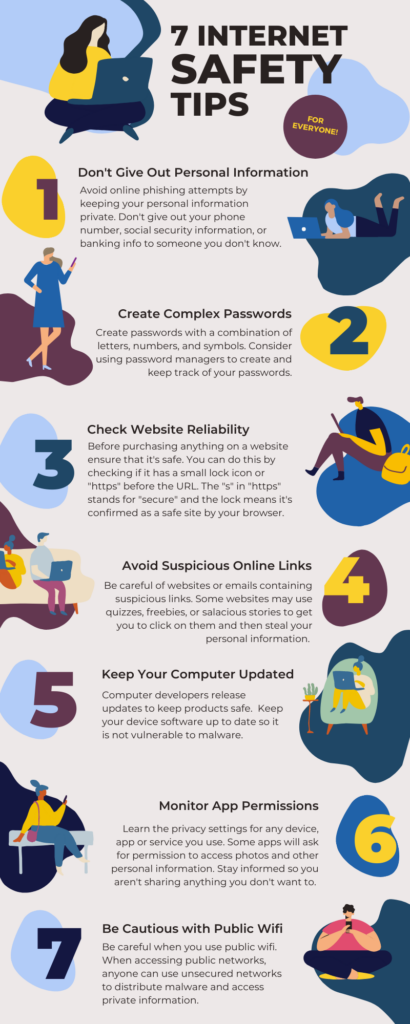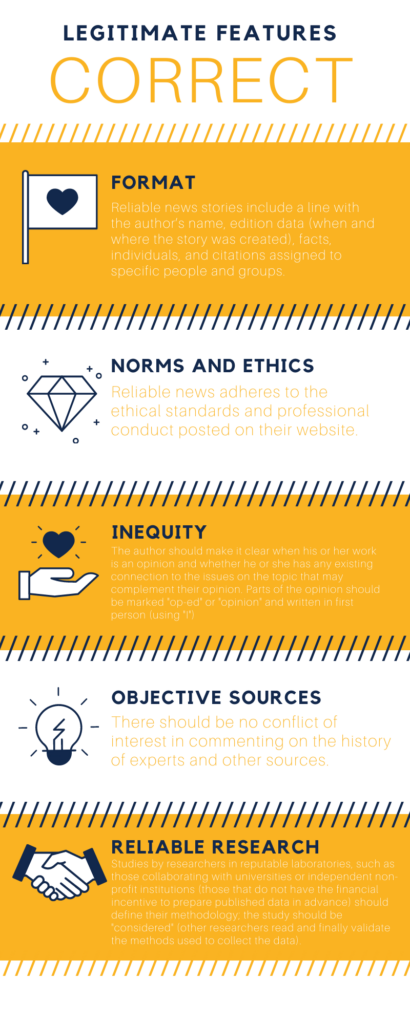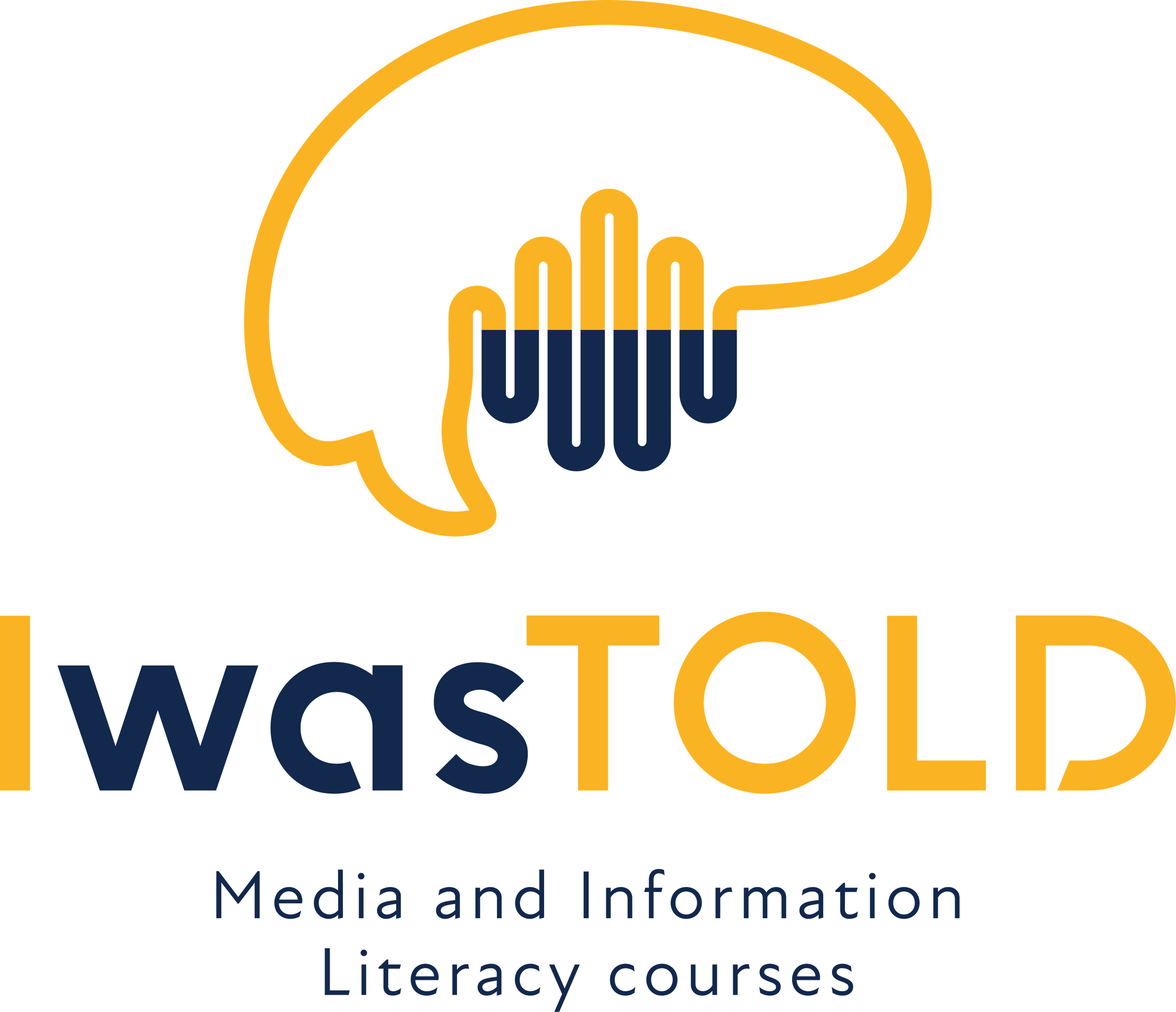1. MEDIA AND INFORMATION LITERACY
-
What is media and information literacy? (Basic meaning)7 Topics|3 Quizzes
-
Introductory to the lesson "What is media and infomation literacy?"
-
The process of media and information literacy
-
Getting depper: what is computer, digital, internet and news literacy?
-
Getting depper: what is advertising, cinema, television and gaming literacy?
-
Final test of the lesson "What is media and infomation literacy?"
-
Feedback of the lesson “What is media and information literacy?”
-
Additional learning material
-
Introductory to the lesson "What is media and infomation literacy?"
-
MIL history and reasons why it appears?7 Topics|3 Quizzes
-
Introduction to the lesson MIL history and reasons why it appears?
-
What We Talk About When We Talk About MIL education
-
Genesis and evolution of media (in) education
-
Evolution and ecology of media and information literacy terminology
-
Final test of the topic "MIL history and reasons why it appears?"
-
Feedback of the lesson "MIL history and reasons why it appears?"
-
Additional learning material
-
Introduction to the lesson MIL history and reasons why it appears?
-
Practical Approaches to Media Literacy in the World7 Topics|3 Quizzes
-
Post-modernic MIL theories7 Topics|3 Quizzes
-
Introduction to the lesson
-
Why is it important where and how you get information?
-
What happens when the pursuit of benefit becomes a value
-
How simulation affects public behavior today
-
Final test of the lesson "Post-modern MIL theories
-
Has knowledge of postmodern MIL theories been helpful?
-
Additional learning material
-
Introduction to the lesson
Participants2
Getting depper: what is computer, digital, internet and news literacy?
Mil 9 September 2021
Computer literacy
Computer literacy is probably the best known literacy of all types. When you enter this term into the Google search engine, you immediately get definitions that, by the way, are slightly different, but their essence is the same. Some definition options are given below. Computer literacy is:
• Knowledge of the basic concepts of hardware and software (nowadays and the Internet) that allow the use of a personal computer for data entry, word processing, spreadsheets and electronic communication.
• Basic, nanotechnological knowledge of computers and how to use them, relationship and experience with computers, software and computer systems.
• Computer literate is a term used to describe individuals who have the knowledge and skills to use a computer and related technologies. Typically, the term is used to describe the most general knowledge and skills required to use software products such as running systems, software applications, or automated network model tools.
Digital literacy
The definition of digital literacy has similarities to the definition of media literacy. According to Cornell University, it is the ability to find, evaluate, use, share, and create content using information technology and the Internet. The University of Illinois provides three definitions on its library page:
• Ability to use digital technologies, communication tools and networks to find, evaluate, use and create information.
• Ability to understand and use information in complex formats from a wide range of sources when available through a computer.
• Human ability to effectively prepare tasks in a digital environment. Literacy includes the ability to read and interpret media, present data and images in digital control, and evaluate and apply new knowledge acquired in a digital environment.
Internet literacy
If library literacy is part of information literacy, then internet literacy is part of digital literacy. It is not difficult to find what it is in a search engine. Generally speaking, this is the ability to search for information when necessary using the internet and including the following three points: 1) Ability to properly target illegal and harmful content online 2) Ability to properly communicate online and 3) Ability to protect your privacy and take precautions. (https://www.igi-global.com/dictionary/internet-literacy/47903)
Internet literacy is one of the basic forms of literacy and this term describes the basic skills of working online. In addition, it is the ability to find information on websites, work by e – mail and other servers (social networks, forums, instant messaging, etc.)

News literacy
News literacy is another very common form of literacy on the basis of which courses are organized and regularly discussed. Briefly and clearly, this can be defined as the ability to assess the reliability and veracity of knowledge messages and why it is important. (http://drc.centerfornewsliteracy.org/content/unit-1-what-news-literacy-and-why-does-it-matter) Streams of fake news, propaganda, rumors and advertisements that often disguise themselves as news never before has it been difficult to separate facts from fiction. News literacy can help identify differences between facts and rumors, news and advertising, news and opinion, and bias and justice.
Like other forms of literacy, it helps to develop critical thinking. Critical thinking in news literacy is:
• Recognizing the differences between journalism and other types of information and the differences between journalists and other information providers.
• Recognition of differences between news and opinion in the context of journalism.
• Analyzing the differences between affirmation and verification and the differences between evidence and conclusions in the context of news stories.
• Evaluating and deconstructing news reports across all news media platforms based on the evidence provided and the reliability of the sources.
• Distinguishing between media bias and audience bias.

Literacy on freedom of expression and information
Freedom of expression literacy (FOE) is understood as freedom of speech. Freedom of expression is the foundation of a functioning democracy, it gives people a “voice” that is often lacking in the media, making it a vital part of media literacy and education.
Freedom of information (FOI) can be defined as the right to access information held by public legal entities. This is an integral part of freedom of expression. Freedom of information can also be understood as the result of freedom of expression. (more – http://www.unesco.org/new/en/communication-and-information/freedom-of-expression/freedom-of-information/)

pic. 3. Infographic about news deconstructing by Austėja Pečiurienė
